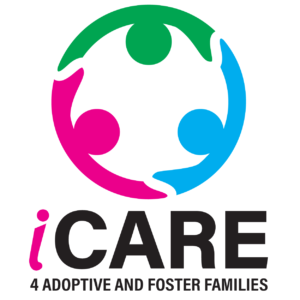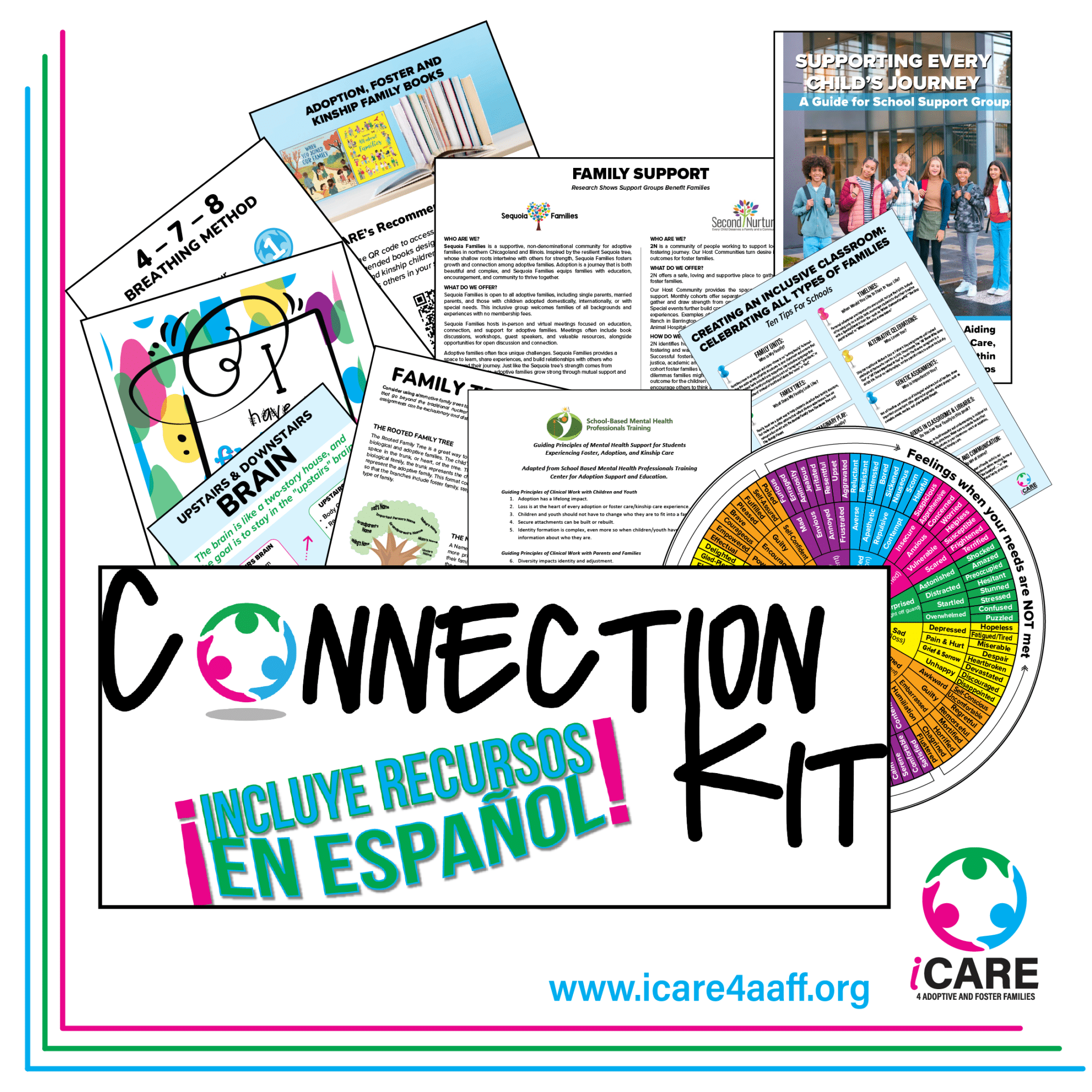MENTAL HEALTH SUPPORT PROFESSIONALS AND PROVIDERS

Are you an iCARE4 Adoptive And Foster Families support provider?
It is important for mental health support professionals to understand that children who have been separated from a birth parent and caregiver are unique from others.
Specialization is needed to support them.
Be listed in our national database. (COMING SOON)
Take the FREE, web-based training: National Training Initiative’s Adoption Competency for Mental Health Professionals developed by the Center for Adoption Support and Education (C.A.S.E.) It is important for educators and school mental health professionals to understand that children who have been separated from a birth parent and caregiver or who have experienced displacement are unique.
Brie Serdar
Education Advocate Former Assistant Superintendent, Principal and Special Ed Teacher
As an educator for the past 20+ years and now a Parent Advocate for children with disabilities, I cannot say enough about the NTI training on attachment trauma. I have sat through countless hours of “trauma” training that has been very helpful for me in my work with youth, however, the NTI training has opened my eyes to another population with very specific needs relating to trauma and loss. The training is extremely thoughtful, valuable and important for anyone who may work with foster and adopted children and their families. While it is geared towards individuals with attachment trauma, it has benefits that extend beyond its intended application. The information presented is helpful in working with all types of students and their families. I cannot recommend this training enough. It is worth your time!
What is Attachment Trauma?
Healthy attachments are the fundamental component for a child’s development.
When children are not comforted when upset, not soothed when scared, not changed when wet, not fed when hungry, etc. or when they are removed from a birth parent for any reason, attachment trauma occurs. It has a profound impact on the brain often causing a heightened state of fear and distrust. These children survive by learning other ways to get their needs met through maladaptive coping skills like control, aggression, anger, yelling and other behaviors. They develop negative beliefs about themselves and others.
Often these children have experienced other developmental traumas that also impact their brain development including prenatal stress, prenatal exposure to alcohol and drugs, traumatic birth, orphanage care, multiple placements, neglect, and abuse. There are over 300,000 children affected by attachment trauma in Illinois schools and even more when complex developmental trauma is included. Only 2% globally of those who qualify as having FASD are actually diagnosed. These are invisible disabilities.
Children who have had attachment trauma include:
- Adopted children from private, international or child-welfare adoptions
- Youth in care, living in foster families or group homes
- Kinship children-living with relatives
- Some immigrant children
All adopted, foster and kinship children struggle to some extent throughout their lives with seven core issues:
Loss, Rejection, Shame, Grief, Identity and Belonging, Intimacy and trust in relationships, Mastery and control of decision making and life events
These children often do not “feel safe” in their new homes because of their experiences before coming into the family. They often have a high level of fear and stress. Love can be scary and distrust is hard-wired. In school these feelings show up as emotional dysregulation, lack of executive functioning, lack of focus, impulsivity, poor academics and sometimes aggressive behaviors towards parents and other children. They are not often able to access their “thinking parts” of the brain. Traditional therapeutic approaches are not effective. Often these children are misdiagnosed with ADHD, ODD, and other mental and behavioral disorders.
When these children reach adolescence, peer relationships and academics become more difficult, sometimes making behaviors and emotions more intense. In fact, research shows that even children who have not struggled before, will often face challenges in middle school and high school. Maladaptive coping skills will be reinforced if providers are not trained properly. Having a full understanding of attachment trauma and strategies that bring healing are critical to your work
Children affected by attachment trauma have confusing emotions and behaviors that cannot be supported through traditional behavior-reward models or cognitive behavioral therapy. Even children placed in loving homes with loving parents can struggle. Supporting children affected by attachment trauma requires a shift from traditional models of care.
For this reason, ALL research and leading experts recommend that a child who is adopted, fostered or in kinship families should be supported through coordination of care between all educators, support professionals and parents involved with a child who is adopted, fostered, or in a kinship family. Transparency and communication is critical and parental involvement is needed.
(Guidance by the Child Welfare Information Gateway, Children’s Bureau, Office of the Administration for Children and Families, U.S. Department of Health and Human Services)
Fundamental principles for working with children with attachment trauma include:
-
- Healing happens best in the context of family.
-
- Services should be provided using a family systems framework that includes the parents.
-
- Assessments must be comprehensive including children and parents’ perspectives.
-
- Understanding that a child’s and family’s challenges often relate to the child’s experiences prior to placement.
(Guiding Principles provided by C.A.S.E. Center for Adoption Support and Education)
Remember:
- Healing can happen through attachment based interventions that strengthen the bond between the child and their parents and caregivers, fostering a sense of belonging.
- Every interaction you have with a child is an opportunity to lead them to connection to their family.
Let the families and your clients know you care about adoptive, foster and kinship children.
iCARE4 Adoptive And Foster Families makes it easy for you to get started.
If you are a Support Provider, there are two training options we suggest taking:
Become an iCARE4 Adoptive and Foster Families Support Provider Today!
- Take the NTI training
- Send us a copy of completion certificate(s)
- Be listed on the website in the National database as an iCARE4 Adoptive And Foster Family Support Provider for families to find you
- Sign up to use our logo on your own website and in your marketing

